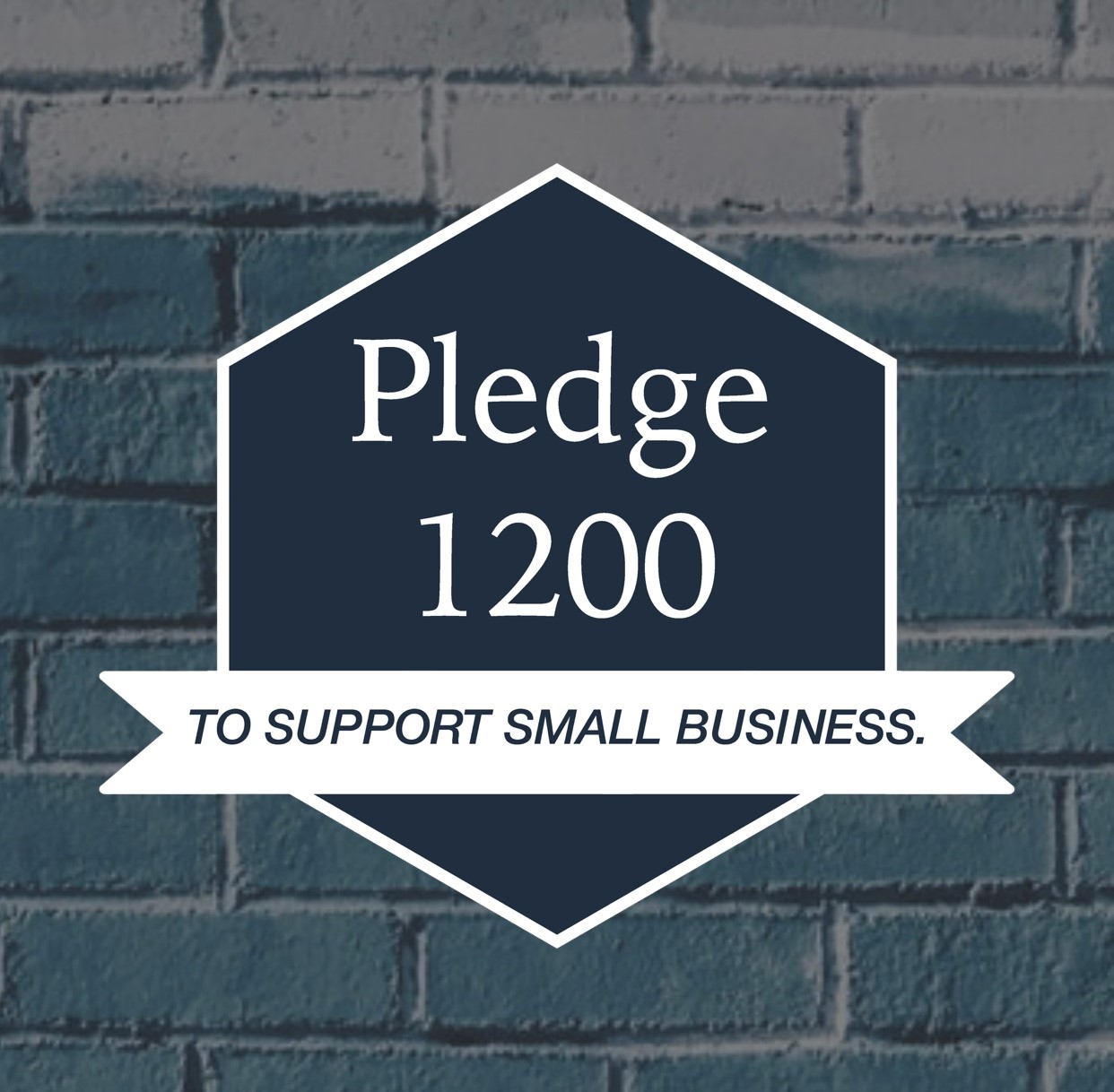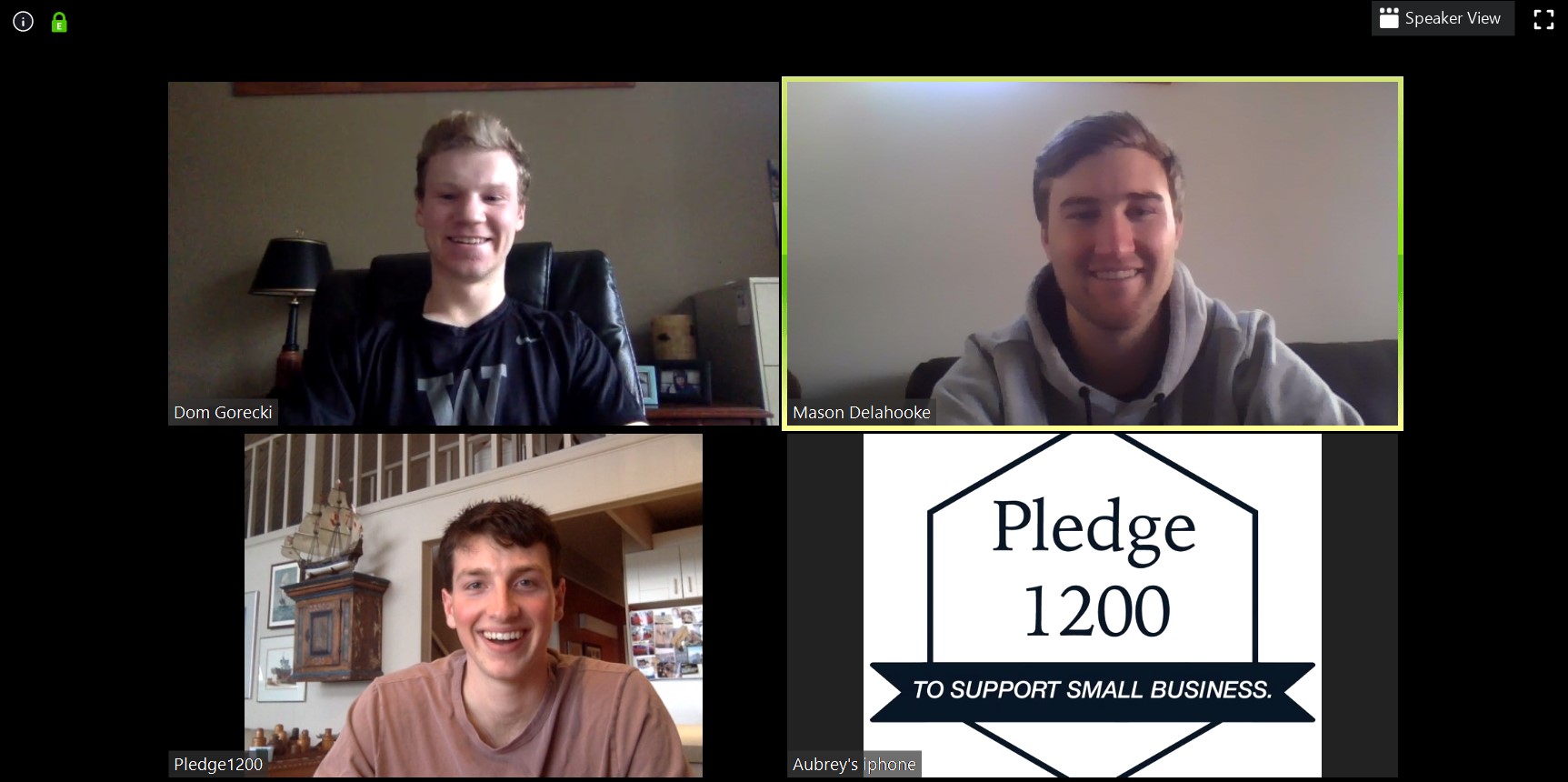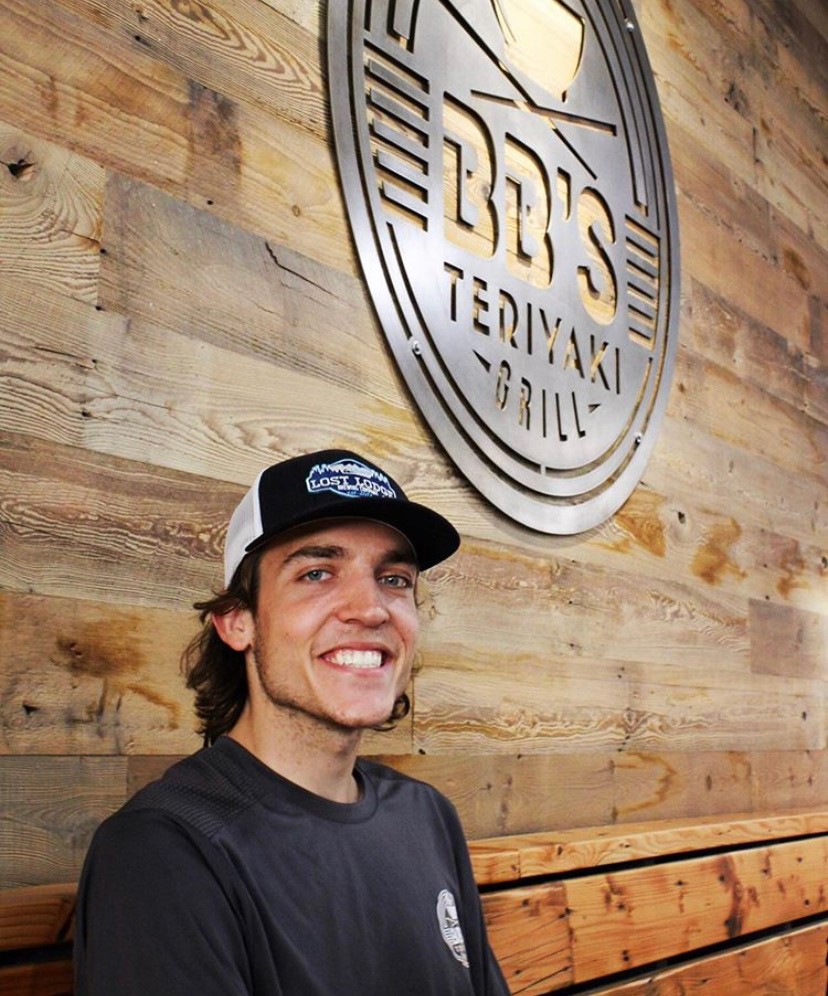#Pledge1200 campaign urges people to spend stimulus dollars at local small business
On March 27, President Trump signed an historic $2 trillion stimulus plan to help Americans and American businesses weather the economic devastation wrought by the COVID-19 pandemic. As part of this unprecedented infusion of aid, many individuals will receive a direct cash payment of $1,200.
Some will desperately need this cash to make rent, pay bills or buy groceries.
Three UW Foster School of Business grads are urging the rest of us to spend this money in support of our favorite small businesses.
Aubrey MacKenzie (BA 2019), Mason Delahooke (BA 2018) and Dominik Gorecki (BA 2020) have created the “Pledge 1200” campaign to protect the most vulnerable sector of the economy.
“We hope to raise awareness about the devastating economic impact that small businesses and their employees are facing as a result of the pandemic,” says MacKenzie. “And we want to encourage Americans to spend their stimulus money—or as much of it as possible—at small businesses, the heart and soul of our local economies.”
Starting local
The concept for Pledge1200 began with a bit of self-inquiry in these strange days. “Like a lot of people, my first question when I heard about the stimulus checks was: what am I going to spend this money on?” MacKenzie recalls. “But a better question soon replaced it: what’s the best way to spend this money?”
He learned that small businesses employee nearly half of the nation’s private workforce, and that the average small business lacks the cash reserves to cover even a month of expenses if revenues stop flowing. This harsh reality has been born out in the nation’s tidal wave of shuttered businesses and millions of sudden unemployment claims.
But what made the crisis really hit home was seeing the mortal threat to some of his own favorite local establishments.
Notably, MacKenzie had made a friend in Mikey Sauvage, the owner of BB’s Teriyaki Grill on the Ave (and two other locations), when he led a consulting project for the restaurant in his MGT 300 course at Foster.
Since the social-distancing order made regular operations impossible, Sauvage has gone to heroic lengths to keep his business open (for takeout and delivery) and his employees paid, while also donating meals to frontline healthcare providers at the UW Medical Center.
“Businesses like Mikey’s, which are going above and beyond to do right by their employees, customers and their community, are the heart and soul of every community,” MacKenzie says. “I thought, how can we help them stay in business?”
Building a movement
He’d seen lots of sentiment on social media supporting favorite local businesses—pizza parlors, boutique clothing shops, hair salons. But no unifying mission to rally around.
“I thought a lot of people aren’t in a position to commit to this right now,” he says. “But for those who will see at least some of the stimulus money as discretionary, they’re going to be in a position to help. That’s where the idea took off.”
MacKenzie, a financial analyst with Columbia Pacific Advisors and graduate of the Jack and Ann Rhodes Professional Sales Program at Foster, can be pretty persuasive. He recruited his friend, Delahooke, a program coordinator in Husky Athletics with graphic design skills, to design the brand. And he recruited Gorecki, a Deloitte consultant with experience at the Buerk Center for Entrepreneurship, to develop a strategic marketing strategy.
Working remotely, the co-founders developed the pledge1200.org website as soon as Congress began drawing up the stimulus package. They launched the site the day it was signed into law.
Get creative
Pledge 1200 is a simple call to action. Enter your name on the site (plus state of residence if you wish to help track the movement’s growth) to pledge your intentions to spend your stimulus check at small businesses.
That’s it. The founders don’t even ask for your email, though they do request that you help spread the word by using the hashtag #pledge1200 or by tagging @pledge1200 on Instagram, Twitter or Facebook.
Then it’s up to you to follow through.
 Given the current constraints of social-distancing orders across the country, supporting local businesses can take some creativity. For instance, MacKenzie prepaid his barber for his next five haircuts to help him keep paying the bills. He offers these additional ways to support small businesses in the time of coronavirus:
Given the current constraints of social-distancing orders across the country, supporting local businesses can take some creativity. For instance, MacKenzie prepaid his barber for his next five haircuts to help him keep paying the bills. He offers these additional ways to support small businesses in the time of coronavirus:
- Order takeout
- Order goods online locally
- Utilize delivery service
- Tip generously on all services
- Buy gift cards
- Reschedule, don’t cancel
- Buy branded merchandise
- Utilize delivery
- Spread the word
Going, well, viral
The target of Pledge 1200 is local spending. But the campaign’s ambition is national.
To amplify their own networks, MacKenzie says that his team is asking small businesses in the Seattle area—and eventually beyond—to reach out to their own customer bases, and to share their stories of COVID-19 struggles on social media, using the hashtag #pledge1200 or tagging @pledge1200.
Initial response has been healthy, with hundreds of signatures from people in more than 25 states in its early days. The Seattle Chamber of Commerce joined the pledge this week. Q13 News ran a story.
But MacKenzie would like to see the Pledge 1200 campaign grow as exponentially as the microbe whose ill economic effects it is trying to counteract.
“Ideally, we’d like to see this become a national movement,” he says. “We hope it goes viral.”


